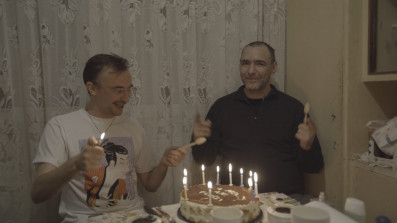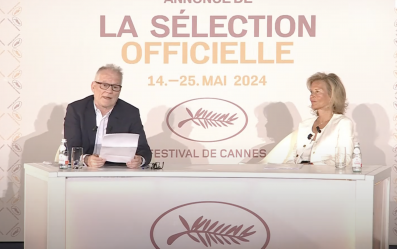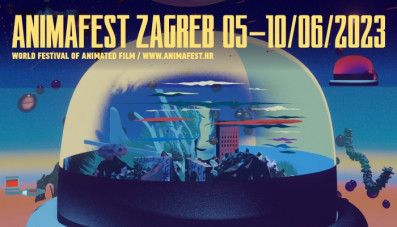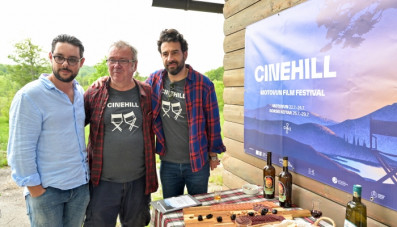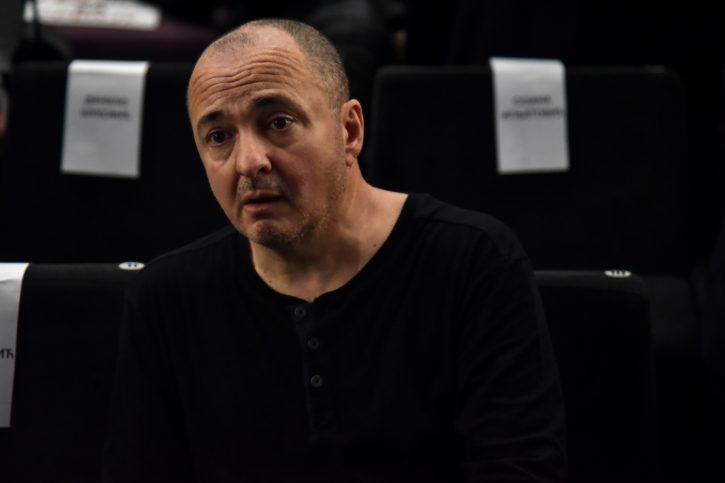
An engaged film is a political attitude- interview with Janko Baljak
It is difficult to experience these places abroad, because people speak the same language
Last week we talked with Janko Baljak, film director and professor at the Faculty of Dramatic Arts in Belgrade. We had a conversation in Zagreb on the eve of the premiere of the film Žurnal o Želimiru Žilniku at ZagrebDox. The film had its world premiere at last year's Sarajevo Film Festival and recently won the award for the best Serbian feature-length documentary at the 69th March Festival in Belgrade.
Speaking about how he came up with the idea to make a documentary about Želimir Žilnik, Baljak says: "Žilnik and I have known each other for many years. Coincidentally, we found ourselves on a trip to Taiwan, where I made a selection of the best Serbian films of the last 50 years. We watched those films and visited two universities in two weeks. I spent 24 hours a day with him for two weeks. We talked about life, politics, history, women, and that amount of intense socializing determined me to share it with the rest of humanity and make a kind of road movie documentary about Žilnik. The film was made three years and we are satisfied with the result. I am overjoyed to have done that because the film will remain an important and important testimony of a man of an incredible career and incredible moral integrity, which was decisive for me to make a film about Žilnik, and not about another director. "
When asked whether the documentary is about Žilnik or the film is about Yugoslavia, no matter how much he was in opposition to it, Janko answered: "When you make a film about Želimir, you make a film about the state due to circumstances." It is inevitable that by making a film about Zilnik, you are also making a film about Yugoslavia. He is the only living director who has left his mark everywhere in our existing states. It is a lament over the situation where all of us, making films, thought that we could and must do better and none of us imagined or dreamed that we would live in a completely different society in which neither he, nor I, nor all normal people are too exaggerated. happy in the states where we live. "The nationalist story and democracy came to the point that there was a split in the country, which in my opinion, and according to Želimir, was the European Union before the European Union, and we did everything to destroy it."
Speaking about the generations of young people who are growing up, as a professor and father, Baljak does not hide his optimism: "The worst thing is that we, the older and middle-aged, impose on the younger generations the models we were guided by, moral and value issues. Only they know what they need and it is stupid to underestimate those kids. There is a huge potential behind them, I have a bunch of brave and capable students and that is why I am very happy. As a professor, you have to keep up with the times and understand them. The worst thing that can happen to you is to talk about the good old days that are no more. You have to accept young people as they are and help them cope with all their doubts, fears, and insecurities. As a professor, I see my space and my mission there. "
Recalling the cult documentary Vidimo se u čitulji and talking about whether there is a possibility that the film will be continued in a new constellation of relations, our interlocutor says: "It is one of the most pirated and cited documentaries ever. I met him in the most amazing places, on flea markets next to porn tapes, in the middle of the worst war in BiH, the film was sold on stalls ... that is a question that has been with me since the film came out, because in the nineties during video clubs the film has its sequel and then the kids came to the video club and asked if Vidimo se u čitulji 2 came out. It's impossible to make that film now because in a documentary things don't work that way. What we noticed, we noticed then and never again. We were crazy lucky in those years when the film was made that they wanted to talk, that they were more popular than TV stars and athletes - and that was not possible before or after the film. That movie is an incident that happens to you once in your life and never again. Everyone in the film ended up in an obituary. Three during the filming and the others later. The current mafia scene does not want to communicate with filmmakers or the rest of the world in that way. "
Commenting on the fact that the film Quo vadis, Aida? Jasmila Žbanić has not yet had the Belgrade premiere, even though Jasna Đuričić won the award for the best European actress, Baljak says: "The film is excellent and it stars the greatest Serbian actors who currently work and exist. This is not open censorship as in Russia. Nobody said that the film could not be released, but the bitter impression remained that Belgrade, which is a tolerant and open environment, still missed the opportunity to promote the film in the cinema. The film was released only in Novi Pazar. I'm sorry about that. I was the first to oppose that and support the screening in Novi Pazar, but it remains a pity that the capital of Serbia did not do it the way it should have done. "
Commenting on the perspective of a common cultural space and future, Baljak concludes: "It is unfair to call us Yugoslav nostalgics. It is a cretinous and completely elaborate construction. We just want a normal, fearless life; normal situations to which I was accustomed from my Yugoslav experience. "
Variation of the interview published at BUKA,
The full interview in audio form in B/C/S can be found here



